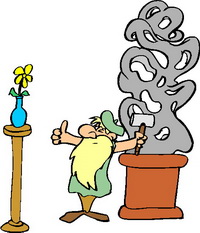|
Từ điển Oxford Advanced Learner 8th
 unlike
unlike

un·like preposition, adjective BrE [ˌʌnˈlaɪk] NAmE [ˌʌnˈlaɪk]
preposition
1. different from a particular person or thing
• Music is quite unlike any other art form.
• The sound was not unlike that of birds singing.
2. used to contrast sb/sth with another person or thing
• Unlike most systems, this one is very easy to install.
3. not typical of sb/sth
• It's very unlike him to be so late.
Opp: ↑like
Word Origin:
Middle English: perhaps originally an alteration of Old Norse úlíkr; compare with Old English ungelīc ‘not of the same kind, not comparable’.
Language Bank:
contrast
Highlighting differences
▪ This survey highlights a number of differences in ▪ the way that teenage boys and girls in the UK spend their free time.
One of the main differences between ▪ the girls and ▪ the boys who took part in the research was the way in which they use the Internet.
Unlike ▪ the girls, who use the Internet mainly to keep in touch with friends, the boys questioned in this survey tend to use the Internet for playing computer games.
▪ The girls differ from ▪ the boys in that ▪ they tend to spend more time keeping in touch with friends on the telephone or on social networking websites.
Compared to ▪ the boys, the girls spend much more time chatting to friends on the telephone.
▪ On average the girls spend four hours a week chatting to friends on the phone. In contrast ▪, very few of the boys spend more than five minutes a day talking to their friends in this way.
▪ The boys prefer competitive sports and computer games, whereas ▪ / while ▪ the girls seem to enjoy more cooperative activities, such as shopping with friends.
▪ When the girls go shopping, they mainly buy clothes and cosmetics. The boys, on the other hand ▪, tend to purchase computer games or gadgets.
Language Banks at ↑generally, ↑illustrate, ↑proportion, ↑similarly, ↑surprising
adjective not before noun (of two people or things)
different from each other
• They are both teachers. Otherwise they are quite unlike.
compare ↑alike, ↑like
Word Origin:
[unlike] Middle English: perhaps originally an alteration of Old Norse úlíkr; compare with Old English ungelīc ‘not of the same kind, not comparable’.
|
|
|
▼ Từ liên quan / Related words
Related search result for "unlike"
|
|
